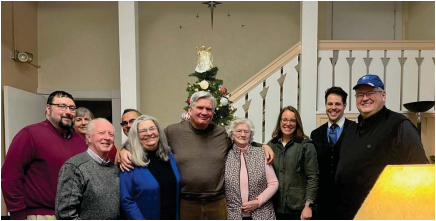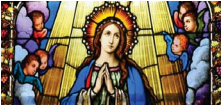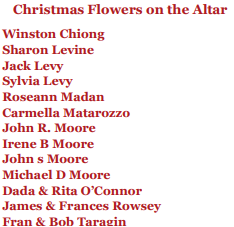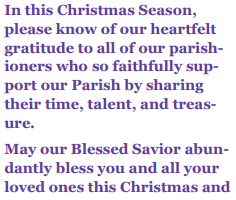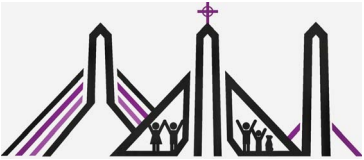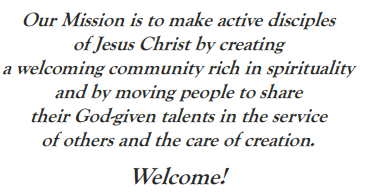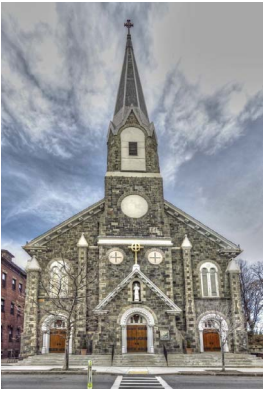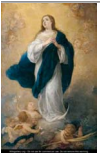From Fr. Sheridan
https://stmarystcatherine.org/wp-content/themes/osmosis/images/empty/thumbnail.jpg 150 150 Charlestown Catholic Collaborative Charlestown Catholic Collaborative https://stmarystcatherine.org/wp-content/themes/osmosis/images/empty/thumbnail.jpg
A young girl was walking along a beach upon which thousands of starfish had been washed up during a terrible storm. When she came to each starfish, she would pick it up and throw it back into the ocean.
People watched her with amusement.
She had been doing this for some time when a man approached her and said, “Little girl, why are you doing this? Look at this beach! You can’t save all these starfish. You can’t begin to make a difference!”
The girl seemed crushed, suddenly deflated. But after a few moments, she bent down, picked up another starfish, and hurled it as far as she could into the ocean. Then she looked up at the man and replied,
“Well, I made a difference for that one!”
The old man looked at the girl inquisitively and thought about what she had done and said.
Inspired, he joined the little girl in throwing starfish back into the sea. Soon others joined, and all the starfish were saved.
-adapted from “The Star Thrower” by Loren C. Eiseley
Carry your candle, run to the darkness. Seek out the helpless, deceived, and poor. Hold out your candle for all to see it. Take your candle and go light your world.
This weekend’s Gospel is meant to be a shot to the bow- a reminder that each of us have been challenged to make a difference in this world. All of us have been called, by virtue of our baptism-
to get out there and make this world a better place.
It’s easy for us to get overwhelmed by the sheer volume of problems in out there- or worse, to be self-satisfied that we’re doing enough. There is also the possibility that we can be fooled by others we’ve all been, taken in; it’s happened to everyone who has reached out- it’s part of the package of any kind of ministry.
We can never do enough- but that can’t deter us.
What God may be calling us to do may seem overwhelming to us- but we need to understand that all what we do is to bring Christ through us to those around us and start from there. It may call us out of our comfort zone but we need to pray for the courage to listen and respond. The winds of change are always blowing, but we should welcome them-
the Holy Spirit is calling- I pray we all listen… and respond.
”Go light your world” was written by Christopher Rice
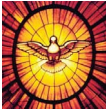
ADULT CONFIRMATION CLASSES – PLEASE SPREAD THE WORD
Full adult membership in the Roman Catholic Church is achieved with the reception of the sacraments of Baptism, Eucharist, and Confirmation. Most Catholics born into our faith receive Baptism as infants and Eucharist in the second grade. Usually, Confirmation is received in the tenth Grade. Due to circumstances of all kinds,
a significant number of adults have never received the Sacrament of Confirmation.
Maybe… It’s Time: to deepen your relationship with God who loves and cares about you. To re-engage
your world again as a Catholic more informed about your faith and its impact in your life. To re-new yourself and
others through the unique power of the Holy Spirit who guides us in Love and Truth.
Candidates 18 years of age or older will attend seven 90-minute classes with orientation on
Wednesday evening at 6:30 on January 25th.
Please contact Sr. Nancy Citro, SNDdeN at 617-242-4664 or ncitro@stmarystcatherine.org for additional
details and to register for the program.
The Dreamer
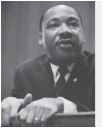
Dr. Martin Luther King, Jr. envisioned a community of goodwill and understanding that “does not begin by discriminating between worthy and unworthy people … It begins by loving others for their sakes.” Let us thank God for the leadership and vision of Martin Luther King Jr. who incorporated Gospel values in the non-violent struggle for equality, justice, freedom and peace for all human beings. “We must learn to live together as brothers or perish together as fools.”
Join us for Mass at 9:00 a.m. in St. Catherine of Siena Chapel on Mon., Jan. 16.
(The Parish Center will be closed that day.)
